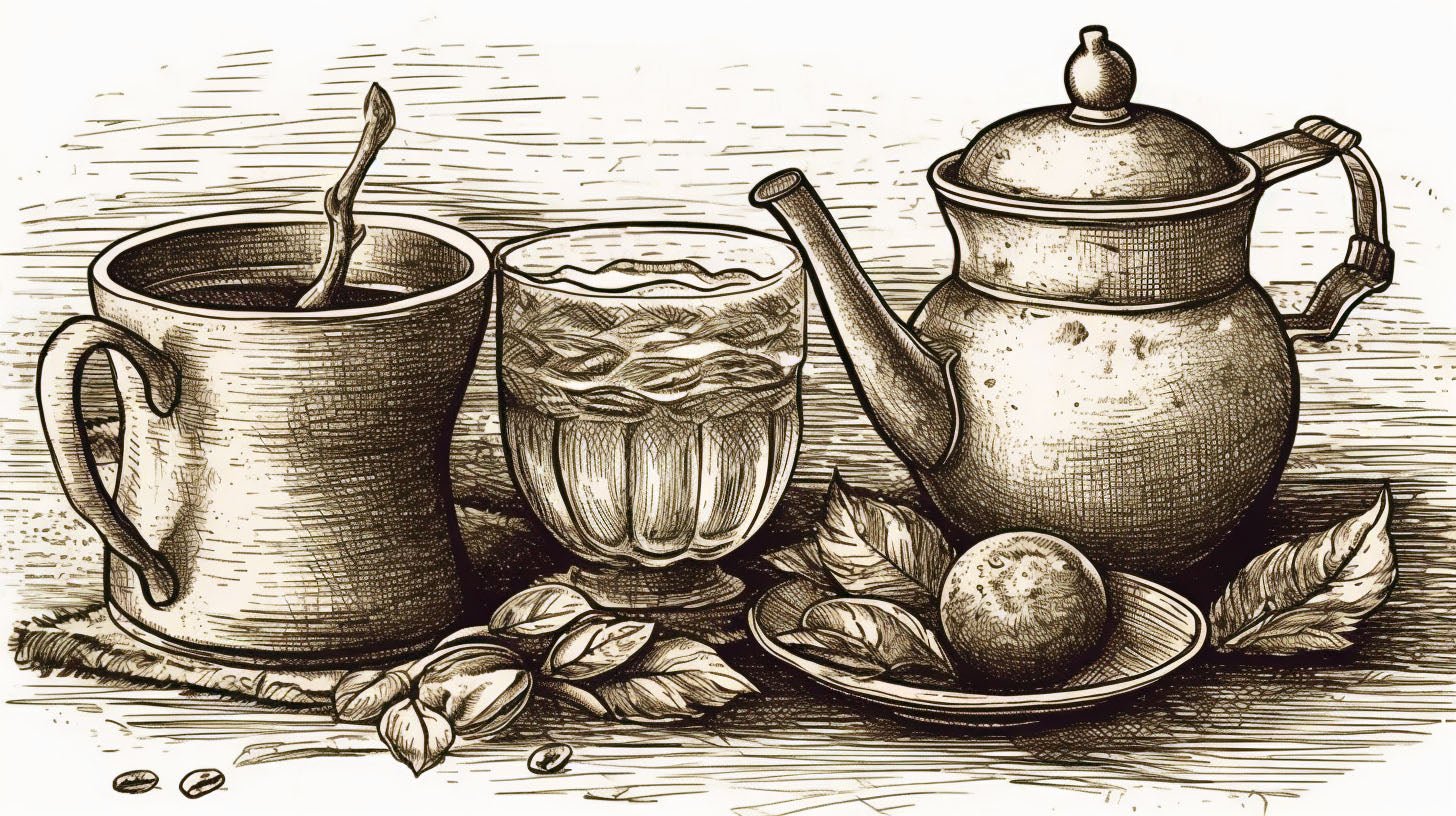
Tea vs. Coffee: A Deep Dive
A Deep Dive into Two of the World's Favorite Beverages
In the world of beverages, few rival the popularity and cultural significance of tea and coffee. These two aromatic drinks have been enjoyed for centuries, offering a comforting boost to those who indulge. But which one is truly superior? In this article, we'll explore the origins, health benefits, types, preparation methods, taste and aroma, environmental impact, cultural significance, global popularity, and economic impact of tea and coffee. Join us on this deep dive as we unravel the secrets behind these beloved beverages.
Understanding the Origins of Tea and Coffee
Let's begin our journey by tracing the fascinating origins of tea and coffee. Tea, originating in China around 5,000 years ago, has a rich history tied to ancient rituals and medicinal usage.
The story of tea begins in the lush mountains of China, where legend has it that Emperor Shen Nong, known as the "Divine Farmer," discovered tea by accident. One day, as he was boiling water under a tea tree, a few leaves fell into his pot. Intrigued by the aroma and flavor of the infused water, he decided to taste it. The rest, as they say, is history.
From its humble beginnings, tea quickly gained popularity among the Chinese population. It was not only enjoyed for its refreshing taste but also revered for its medicinal properties. Ancient Chinese herbalists discovered that different types of tea leaves had various health benefits, ranging from aiding digestion to boosting energy.
As tea became an integral part of Chinese culture, it also found its way into religious ceremonies and social gatherings. The art of tea preparation, known as "Cha Dao," was developed, emphasizing the importance of mindfulness and tranquility while brewing and serving tea.
Meanwhile, on the other side of the world, coffee was making its own journey through time and space. Coffee, known for its invigorating properties, emerged from the highlands of Ethiopia in the 9th century.
According to an ancient Ethiopian legend, a goat herder named Kaldi noticed that his goats became unusually energetic after eating the red berries from a certain tree. Curious, he decided to try the berries himself. Soon, he experienced a newfound alertness and vitality.
News of this magical fruit spread, and the cultivation of coffee began. It wasn't long before coffee became a popular beverage in Ethiopia, with people gathering in coffeehouses to socialize and enjoy the stimulating effects of the drink.
Over time, both tea and coffee found their way to different corners of the world, captivating people with their unique flavors and effects. Tea became an integral part of Japanese culture, with the development of the elaborate tea ceremony, while coffee gained popularity in Europe during the Age of Exploration.
Today, tea and coffee continue to be beloved beverages worldwide, with countless variations and preparations. Whether you prefer the delicate aroma of a cup of tea or the bold richness of a freshly brewed coffee, these beverages have undoubtedly left an indelible mark on human history and culture.
Examining the Health Benefits of Tea and Coffee
Tea and coffee offer more than just a pleasing taste. Both beverages present various health benefits that have been praised by researchers and enthusiasts alike. From antioxidants in tea to potential cognitive benefits of coffee, these drinks have become prized for their positive impact on mental and physical well-being. However, it's important to note that moderation is key, as excessive consumption may have adverse effects.
Let's start with tea. Tea, particularly green tea, has gained popularity in recent years due to its high antioxidant content. Antioxidants are compounds that help protect our cells from damage caused by harmful molecules called free radicals. Green tea is rich in catechins, a type of antioxidant that has been linked to a reduced risk of chronic diseases, such as heart disease and certain types of cancer.
Not only does green tea contain antioxidants, but it also contains a small amount of caffeine. This combination of caffeine and antioxidants has been found to have a synergistic effect on brain function. The caffeine in green tea can improve alertness and focus, while the antioxidants help protect brain cells from oxidative stress, potentially reducing the risk of neurodegenerative diseases like Alzheimer's and Parkinson's.
But it's not just green tea that offers health benefits. Black tea, which is more oxidized than green tea, also contains antioxidants that can promote heart health. Some studies have shown that regularly consuming black tea may help lower blood pressure and reduce the risk of heart disease. Additionally, black tea has been associated with improved gut health, as it contains compounds that can promote the growth of beneficial gut bacteria.
Now, let's turn our attention to coffee. Coffee is one of the most widely consumed beverages in the world, and for good reason. Like tea, coffee is rich in antioxidants. In fact, coffee is the biggest source of antioxidants in the Western diet. These antioxidants, such as chlorogenic acid, have been linked to a reduced risk of chronic diseases, including type 2 diabetes, liver disease, and certain types of cancer.
But coffee's benefits don't stop there. The caffeine in coffee is well-known for its stimulating effects on the central nervous system. It can increase alertness, improve mood, and enhance cognitive function. Some studies have even suggested that regular coffee consumption may help protect against age-related cognitive decline and reduce the risk of neurodegenerative diseases.
Furthermore, coffee has been associated with a lower risk of developing certain types of cancer, such as liver and colorectal cancer. It is believed that the antioxidants and other bioactive compounds in coffee may have anti-carcinogenic properties, helping to prevent the formation and growth of cancer cells.
While both tea and coffee offer numerous health benefits, it's important to consume them in moderation. Excessive consumption of caffeine can lead to side effects such as increased heart rate, anxiety, and sleep disturbances. Additionally, some people may be more sensitive to the effects of caffeine than others, so it's important to listen to your body and adjust your intake accordingly.
In conclusion, tea and coffee are not only delicious beverages but also offer a range of health benefits. From the antioxidant-rich green tea to the stimulating effects of coffee, these drinks have been linked to improved mental and physical well-being. However, it's essential to enjoy them in moderation to avoid any potential adverse effects. So, go ahead and savor your cup of tea or coffee, knowing that you're not only indulging in a delightful drink but also nourishing your body.
Exploring the Different Types of Tea and Coffee
Step right into the world of tea and coffee as we explore the vast array of options available. From delicate white teas to robust black teas, the tea universe offers a taste for every palate. On the other hand, coffee aficionados can savor an assortment of brews, such as espresso, cappuccino, pour-over, and more. Each type of tea or coffee boasts distinctive flavors and brewing methods, allowing enthusiasts to find their perfect cup.
The Pros and Cons of Tea and Coffee
As with any beloved beverage, tea and coffee come with their fair share of pros and cons. Tea, for instance, is calorie-free and contains less caffeine, making it a healthier choice for those mindful of their intake. Coffee, on the other hand, packs a stronger caffeine punch, providing an instant energy boost. However, excessive coffee consumption may lead to jitters and disrupted sleep. It's all about finding the right balance for your lifestyle.
Looking at How Tea and Coffee are Prepared
Steeped in tradition, the preparation methods of tea and coffee are as diverse as the cultures that embrace them. From the art of brewing tea leaves to the precise grind size and brewing time for a perfect cup of coffee, the rituals surrounding these beverages have been refined over centuries. Whether it's an elegant tea ceremony or a sophisticated coffee ritual, the process of making these drinks is an experience itself.
Comparing the Taste and Aroma of Tea and Coffee
One sip, and you're transported to a world of flavors and aromas. Tea and coffee offer distinctly different taste profiles that cater to various preferences. Tea tantalizes the palate with its delicate, floral, earthy, or grassy notes, while coffee captivates with its range of flavors, from nutty to chocolatey, fruity to floral. The aroma of each beverage further enhances the sensory experience, enveloping you in a warm embrace.
Investigating the Environmental Impact of Tea and Coffee Production
It's important to consider the environmental impact of our favorite beverages. Tea and coffee production have far-reaching consequences, from deforestation to water usage and carbon emissions. By exploring sustainable practices, such as Fair Trade and organic farming, we can support the industry's efforts to minimize its ecological footprint and ensure a better future for the planet.
Examining the Cultural Significance of Tea and Coffee
Tea and coffee have cemented their place as cultural icons around the globe. From British tea time rituals to Japanese tea ceremonies, or the cozy coffee shops of Italy to the vibrant cafés of Paris, these beverages have shaped social interactions and become symbols of hospitality and relaxation. Discover how tea and coffee have woven themselves into the fabric of different cultures, bringing people together over shared experiences.
Exploring the Global Popularity of Tea and Coffee
In a world with diverse tastes, tea and coffee have managed to capture the hearts of billions. While tea reigns supreme in countries like China and India, coffee holds sway in nations like the United States and Brazil. These beverages have not only conquered individual palates but have also become an integral part of national identities. Join us as we embark on a global journey to understand just how deeply tea and coffee have permeated societies.
Investigating the Economic Impact of Tea and Coffee Consumption
The love for tea and coffee goes beyond just personal preferences; it has profound economic implications. The tea and coffee industries provide livelihoods for millions of people worldwide, from farmers and suppliers to café owners and employees. By delving into the economic impact of tea and coffee consumption, we can appreciate the significance of these beverages beyond their taste and cultural significance.
As we conclude this deep dive into the world of tea and coffee, it becomes clear that choosing a favorite between these beloved beverages is no easy task. Tea and coffee offer unique experiences, flavors, aromas, and cultural connections. Ultimately, the best choice comes down to personal preference and the ritual that brings you joy. So, go ahead, pour yourself a cup, and savor the magic of your favorite brew.

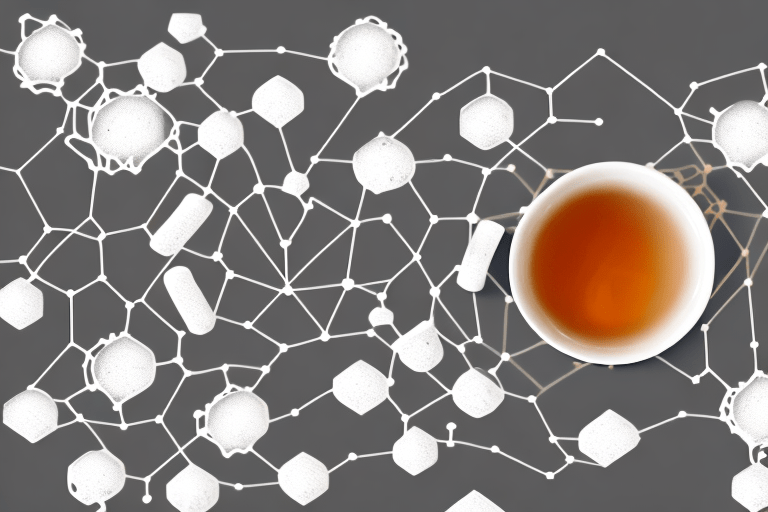
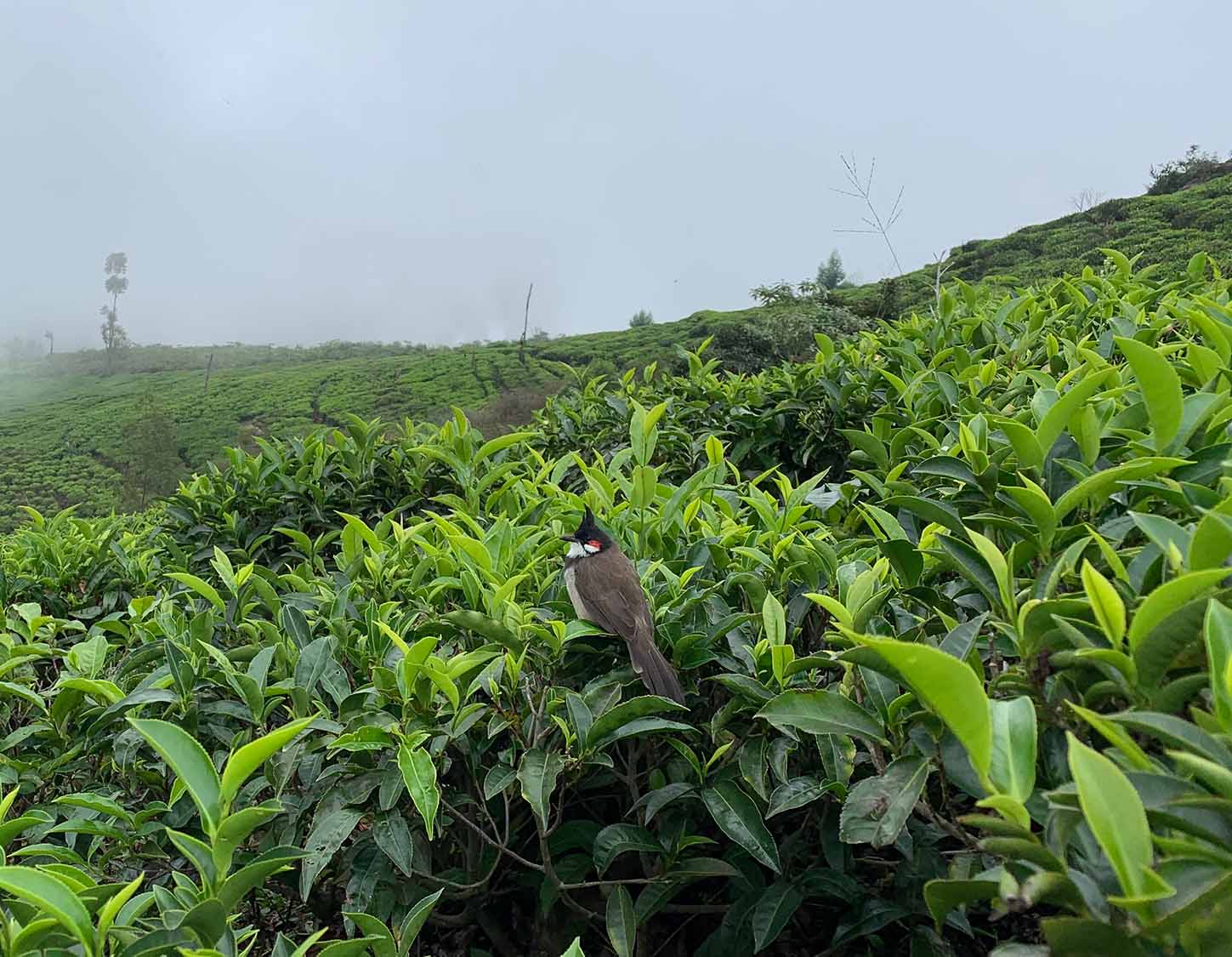
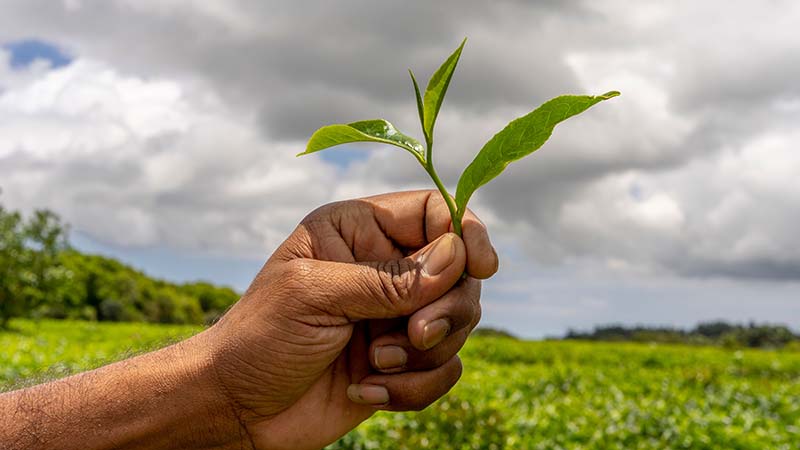
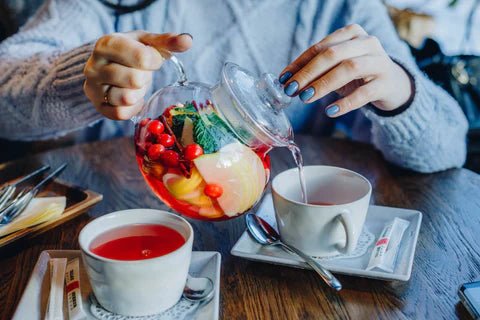

Leave a comment
This site is protected by hCaptcha and the hCaptcha Privacy Policy and Terms of Service apply.